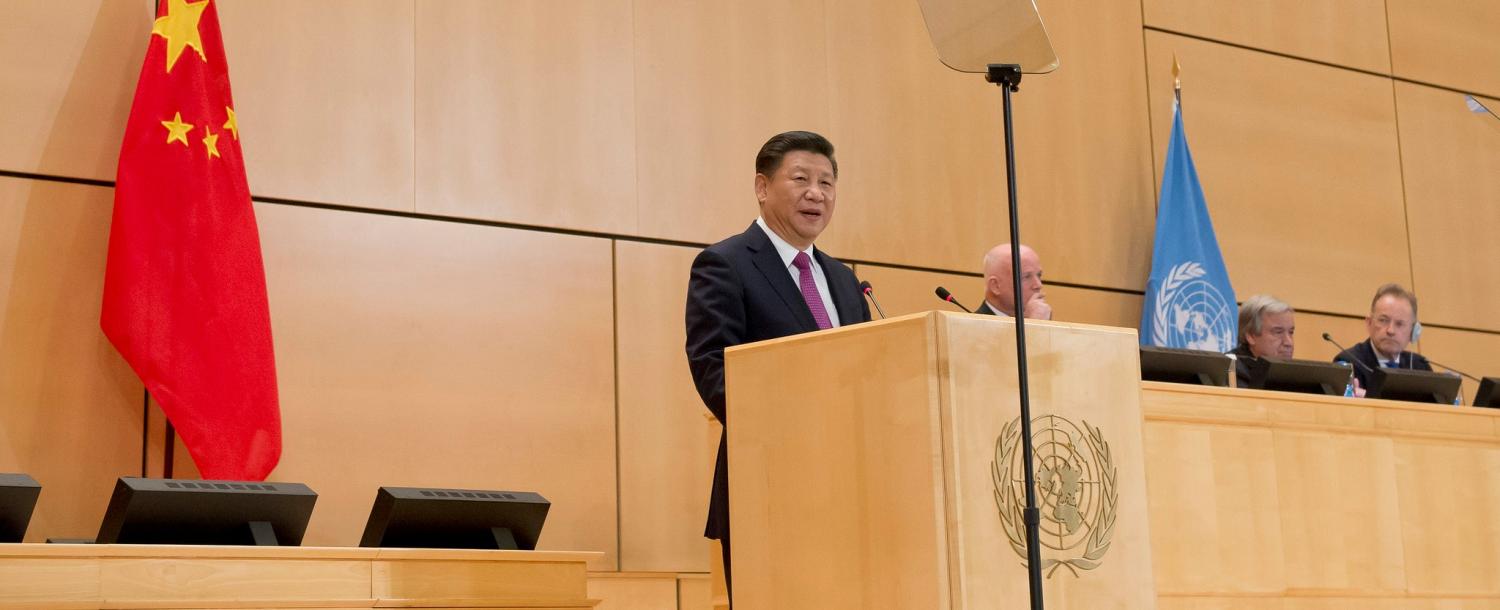The world seems to never run out of reasons to fear China, be they racial or ideological differences ('Yellow Peril' and 'Red Menace'), Chinese nationalism or Beijing's growing sharp power.
The latest reason is the apparent arrival of a China-led world order, symbolised by everything ranging from the rollout of China's Belt and Road Initiative to its warning of consumer-led boycott of Australian goods. One commentator tweeted that 'to those who counselled (and continue to counsel) accommodation with a rising China, [the boycott warning] is what a new Chinese-led order will feel like.'
Just imagine: in this new order, Beijing will call the shots, always ready to dish out punishment against any disobedient country. Were this to become the prevalent system, it would indeed be chilling to many who have been used to the US-led world order, in which international law, rules and norms guide international politics. Except, of course, for the fact that these two contrasting orders are more imagined than reality.
Despite much-discussed Chinese influence in Australia and beyond, the so-called Chinese-led order remains largely elusive. For a start, the new hegemon has not even had its maritime borders settled. Had there been a new Sino-centric order, Chinese influence would not have been seen as so toxic as to bring down anyone thought to have undue links with China (the disgraced Senator Sam Dastyari comes to mind). A country's influence is the strongest when it is seen as normal and barely registers a mention, which is clearly not the case for China.
This is not to say that China has refrained from attempting to increase its influence; it has, but then who hasn't? Australia's recently released Foreign Policy White Paper repeatedly calls for maximising 'our national power and international influence'. But while Canberra can claim to often punch above its weight internationally, China's attempts to seek influence have often been met with alarm and resistance; hardly a promising sign of a Chinese hegemonic order. For instance, nothing seems to infuriate Beijing more than a state hosting the Dalai Lama, but on most occasions its stern warnings fall on deaf ears. Even Botswana hit back by saying that it retained the sovereign right to allow anyone to enter its territory.
Nevertheless, some suggest that time is on China's side. Norway, for example, recently mended ties with Beijing after the diplomatic freeze following the awarding of the 2010 Nobel Peace Prize to Chinese dissident Liu Xiaobo. But Norway's change of heart seems to have less do with the reality of a Chinese order than with its hope for getting a bigger slice of the China trade. Even before the normalisation of their relationship in 2016, bilateral trade between the two countries hit record levels in 2015. Isn't China's market power part of the lure of the Chinese order? Perhaps so, but Western merchants have been fascinated by the Middle Kingdom's market potential for centuries. If that is what underpins the Chinese order, its order is built on shaky ground indeed.
No wonder, then, that Australia, while enjoying its largest trade surplus with China, has led the way in calling China out, convinced that China does not respect weakness. Unfazed by prospects of Chinese boycotts or economic fallout from Beijing, Canberra reassures itself that 'China trades with us because it is in China's interest to trade with us'.
Canberra has a point. Beyond China there exists a larger global economic system, in which economic power has become more diffused and more interconnected, rendering unilateral boycotts a double-edged sword. Such punitive measures rarely work in the now globalised system. Although China's boycott led to a drop of 32% of Japanese car exports to China between 2012 and 2013, trade bounced back to normal levels a year later. The Chinese boycott of South Korea also did little to stop the latter from hosting the US-deployed anti-missile system known as THAAD.
If the Chinese-led order looks rather like a paper tiger, the US-led rules-based liberal order is also a myth outside the Anglosphere. The Chinese warning of a consumer-led boycott may seem heavy-handed, but no less intimidating are the US government's thinly-veiled threats to more than 120 countries that voted for the UN General Assembly resolution condemning US President Donald Trump's provocative decision on Jerusalem. It turns out that the UN counts for little in the US-led rules-based order. Nor is Trump's approach unprecedented; following the 9/11 attacks, US President George W Bush famously declared that 'either you're with us or you're with the terrorists'. Disregarding the UN, the US-led coalition of the willing, in which Australia was a key player, went to war in Iraq and championed regime change. The ensuing destruction and chaos are anything but rules-based or orderly. And, of course, there is no prize for guessing which country has perfected sanctions as weapons of mass destruction.
Even so, the US-led order may seem still immensely preferable to a Chinese-led one, especially if you are lucky to live safely in the West. And yet, anyone who wishes to continue to enjoy the benefits of this US-led order would do well to seriously reflect on its many failings and double standards. The biggest threat to that order comes not from an unlikely Chinese order, but from within itself.

